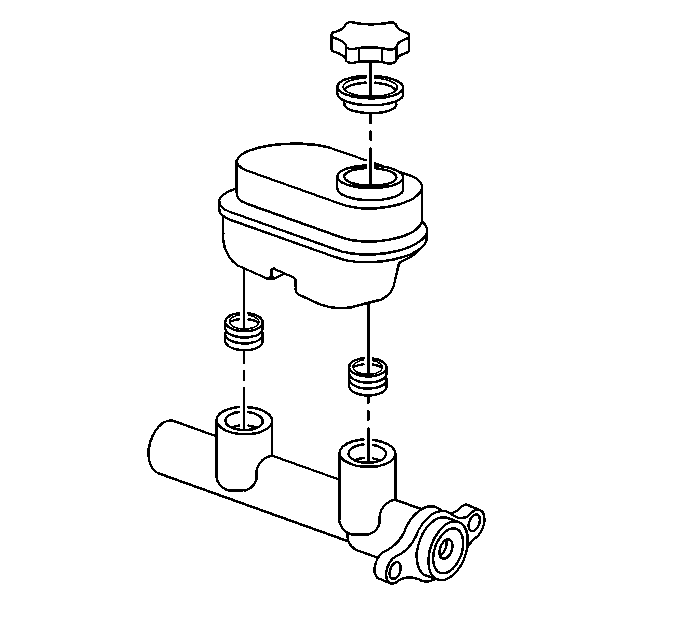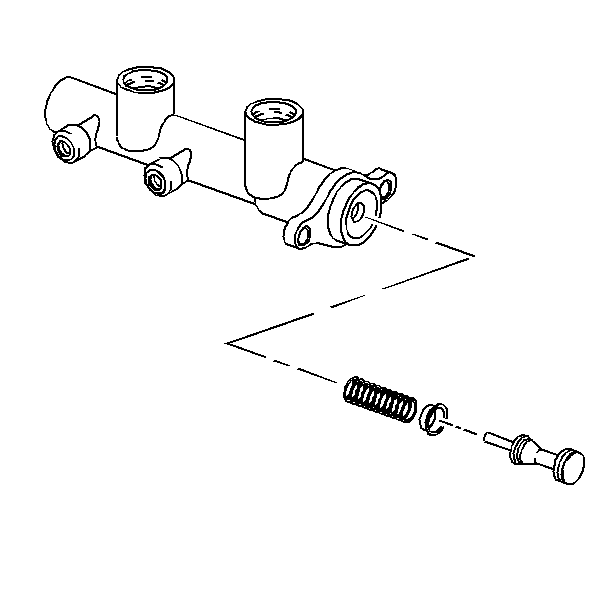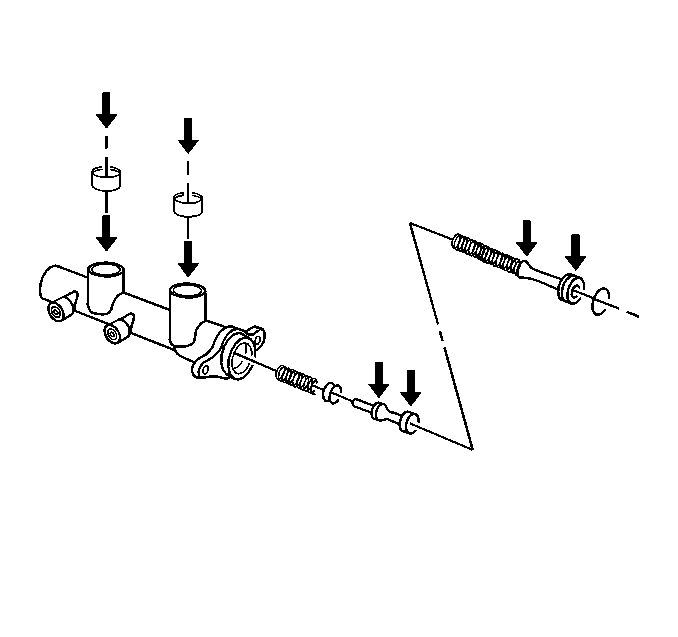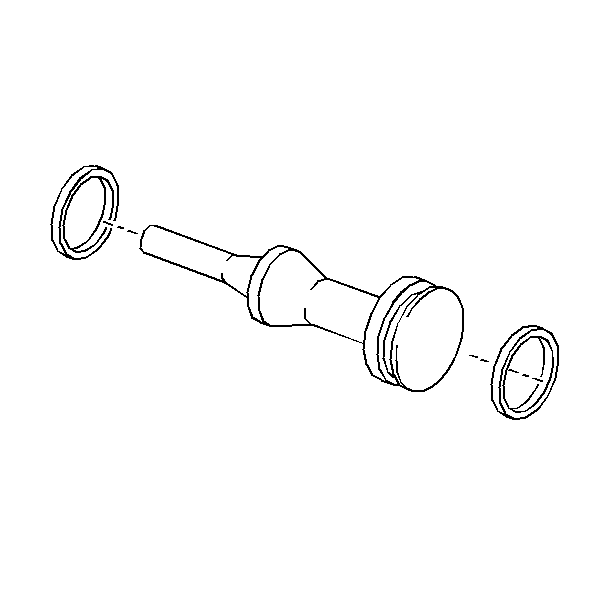Disassembly Procedure
Notice: Do not hone the master cylinder bore. When the brake master cylinder is overhauled, it is recommended that the cylinder body be replaced rather than CLEANED UP by honing the bore. The master cylinder has a hard, highly polished BEARINGIZED surface, which is produced by diamond boring followed by ball or roller burnishing under heavy pressure. Honing will destroy this hard smooth surface and cause rapid wear of the rubber cups.
- Remove the reservoir cap.
- Drain the brake fluid from the reservoir.
- Remove the reservoir and two grommets from the master cylinder body.
- Clamp the master cylinder mounting flange in a vise.
- Remove the snap ring.
- Remove the primary piston assembly from the master cylinder body.
- Remove the seal.
- Remove the secondary piston from the master cylinder body.
- Remove the seals.
- Remove the spring retainer and the spring from the master cylinder body.
- Clean all the parts using the following procedure:
- Inspect the diaphragm for cuts, cracks, or swelling.
- Inspect the cylinder bore for scoring or corrosion.
- Inspect the reservoir for cracks.



Caution: If air pressure is used to remove the secondary piston, place the open end of the cylinder bore approximately 25 mm (1 in) from a padded workbench or other surface to catch the piston when it comes out of the bore. Apply low air pressure very carefully to ease the piston out of the bore. Never point the open end of the bore at anyone when applying air pressure. The piston may come out of the bore with considerable force and cause personal injury.
Plug the rear port. Apply a small amount of air pressure to the front port.
Notice: Use only approved solvents when cleaning or flushing the master cylinder and related components. Solvents which contain traces of mineral oil or other contaminants will damage the rubber parts in the system.
| • | Clean the metal parts in denatured alcohol. |
| • | Clean the rubber parts in clean brake fluid. |
| • | Replace the master cylinder if corrosion is present. |
| • | Do not attempt to hone the cylinder bore. |
Assembly Procedure
- Lubricate the grommets, seals, and the cylinder bore with clean DOT 3 motor vehicle brake fluid.
- Use new seals when assembling the master cylinder.
- Install the secondary piston spring.
- Install the spring retainer.
- Install the primary seal on the secondary piston.
- Install the secondary seal on the secondary piston.
- Install the secondary piston in the master cylinder body.
- Install the seal on the primary piston.
- Install the primary piston assembly in the master cylinder body.
- Install the snap ring.
- Compress the primary piston in order to install the snap ring.
- Install two new grommets to the master cylinder.
- Install the reservoir on the master cylinder body.
- Install the reservoir cap.





